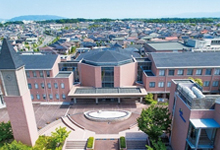Professor Tomonori Tatsumi of Kio University conducted a study on individual differences that affect the emotional regulation behavior of injured athletes, and found that injured athletes who tend to have a strong tendency to have difficulty communicating emotions suppress the expression of negative emotions caused by injury. The results suggest that because they tend to focus on what they do, they are more likely to develop maladaptive reactions.
If an injured athlete continuously suppresses negative emotions caused by injury, they may not be able to concentrate on future-oriented coping behaviors such as rehabilitation, or they may overadapt, leading to injury recurrence or mental disorders. On the other hand, in order to determine whether the response to injury is adaptive, it is necessary to examine not only the viewpoint of suppression but also the viewpoint of whether the current situation can be reinterpreted positively.
Research has found that individual variables thought to influence the suppression of negative emotion expression include sports ethics commitment (self-involvement in group norms that prioritize organizational rationality), athlete identity (self-consciousness as an athlete), and emotional communication. We focused on three elements of difficulty (individual tendencies that make it difficult to describe and communicate self-emotions).
``Sports ethics commitment and athlete identity enable the exercise of both restraint and positive reinterpretation,'' and ``Difficulties in communicating emotions prevent the exercise of positive reinterpretation, but only restraint.'' A survey was conducted on 180 subjects based on certain injury criteria.
As a result of the analysis, both hypotheses were supported, and injured athletes who tend to have a strong tendency to have difficulty communicating emotions tend to suppress the expression of negative emotions caused by injury, which makes them more likely to manifest abnormal reactions. It was concluded that
In the future, in order to refine the findings, it will be necessary to follow injured athletes longitudinally and examine the relationships between variables during normal and abnormal reactions over time.
Paper information:[PLOS ONE] Individual-differences affecting emotion regulation behaviors of injured athletes: A retrospective quantitative study

